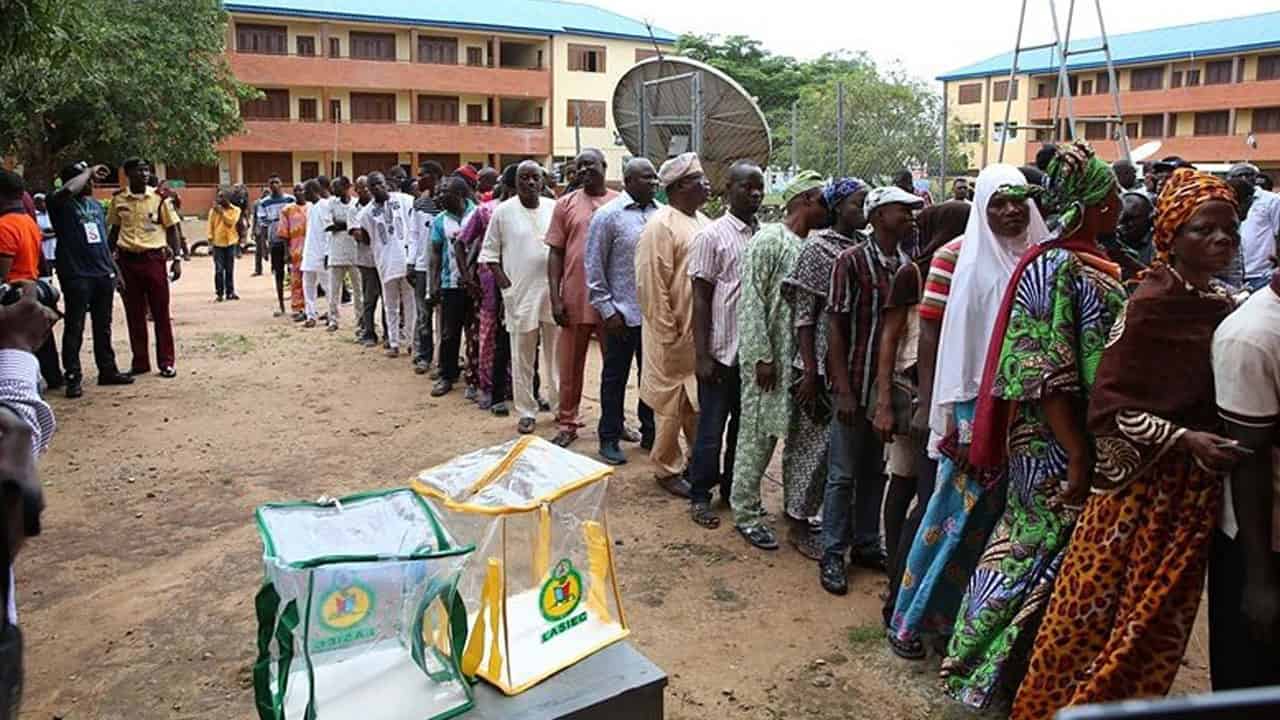Nigeria Civil Society Situation Room, a coalition of more than 70 organisations, insist that the power to determine the procedure for transmission of election results should be vested with INEC.
Convener of the group, Ene Obi, told a news conference on Monday in Abuja that the insistence became imperative because INEC had proven that it could conduct electronic elections.
Obi said that Situation Room and the EU Support to Democratic Governance in Nigeria, the implementing partners have called on the National Assembly to show selflessness in decision-making.
Obi said that INEC’ had shown that it had adequate capacity to apply technology in elections, including the transmission of results.
She added that the capacity had been proven during off-cycle elections and through INEC’s use of the Z-pad and more recently the Bimodal Voter Accreditation System.
“Notwithstanding the landmark proposals in the on-going review process, civil society partners and key stakeholders have identified about 17 points of divergence in the versions of the Electoral Act Amendment Bill passed by the National Assembly.
“These are the use of smartcard readers, deployment of electronic voting, collation and transmission of results, cost of campaigns, and processing of nomination of candidates, among others.
“As expressed by a vast majority of electoral stakeholders and Nigerians, we are concerned by these identified differences in the proposals, particularly regarding electronic transmission of results and deployment of technological devices.
“Following from our experience and observations of elections in recent years, we expect the harmonisation committee to accept the version of the Bill that allows INEC to determine the mode of conduct of elections, including transmission of results,’’ she said.
Obi said the version of the Electoral Amendment Bill stipulating the involvement of the Nigerian Communications Commission before transmission of results electronically, was a breach of 199 Constitution.
She said that this might result in long-drawn litigations and uncertainty, which could put INEC’s preparations for elections in jeopardy.
She added that it was in the light of the above that Situation Room made some recommendations to the harmonisation committee of the National Assembly.
Another member of Situation Room, Cynthia Mbamalu, said the group recommended the adoption of the Senate’s version of Clause 43, which recognised that INEC could use voting devices alongside election materials.
She said the group also called on the harmonisation committee to adopt the Senate’s version of Clause 49, which recognises the use of other technological devices alongside smartcard readers for voter accreditation.
She added that the House of Representatives’ version of Clause 52 should be adopted which gave INEC the power to determine the procedure for voting and transmission of election results.
Mbamalu said that the group urged the harmonisation committee to adopt the Senate’s version of Clauses 63 and 76 which increased the penalty for sanctioning a presiding officer who contravened the Electoral Act concerning proper counting and accounting for votes.
She said that there was also the need to adopt the Senate’s version of Clause 87 giving political parties the option to adopt either direct or indirect primaries.
“We will continue to follow up with the harmonisation committee’s work and urge it to act in the best interest of the nation, devoid of short-term political intrigues and calculations.



